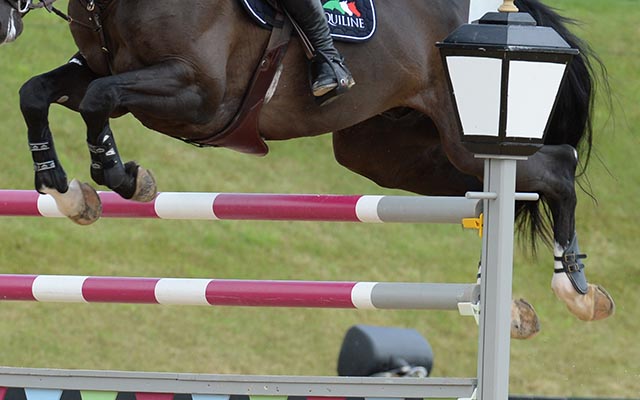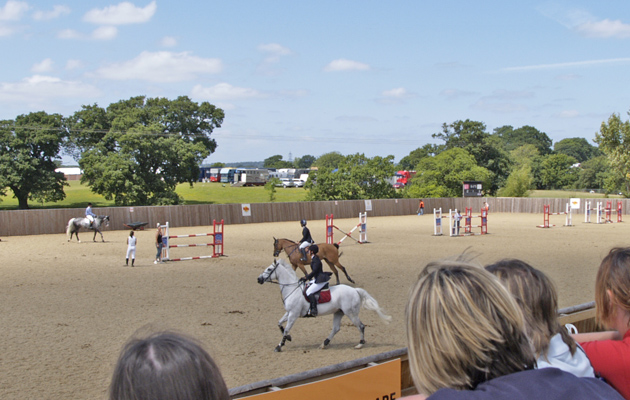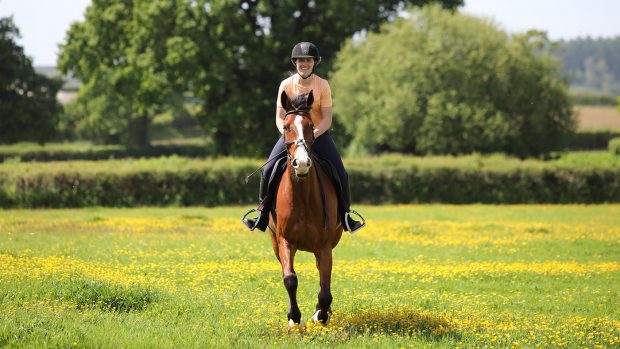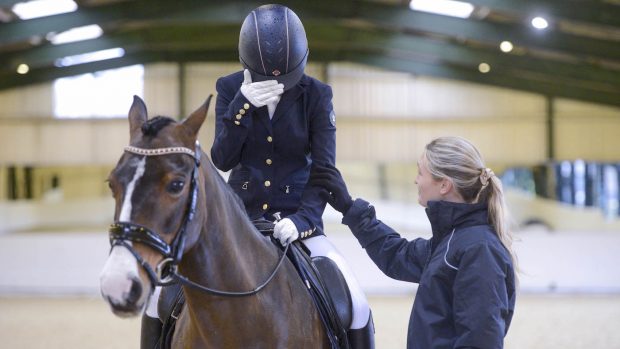Focusing on your riding alone is unlikely to cut it in today’s tough competition world. Horse & Hound meets sports performance coach Danielle Olding to find out how taking a different approach to your riding can give you the edge.
Here she looks at the three most common problems she sees in riders — and how to tackle them
1. Lack of self-awareness
“A number of riders who have no obvious issues may believe they are already riding to the best of their ability and thus fail to be consistent under pressure. This could also be an issue with riders who do have specific problems, but lack the awareness of ‘how’ they create these in their heads.
“If you are not aware of the mental processes that occur you won’t be able to replicate the effective ones to maximum effect, or manage and re-route the ineffective ones.”
Danielle’s advice: “Take the time to notice what is going on in your head at the point in time that you notice you are riding well or badly. Make sure you do this at lower level competitions or at home rather than leaving it to a major championship. Recall what was going on in your head the moment before you noticed yourself riding well or badly. Try to notice particular triggers, patterns or trends in your thought processes that are leading to your behaviour.”
2. Lack of brain training
“Riders often devote hours to improving their horse’s way of going or their own technical ‘on-horse’ skills, but fail to devote any time to training their brain to generate the kind of responses that they take for granted will happen under pressure.
“Some riders think that riding well from a physical or technical viewpoint is enough and that the rest will follow. Sadly, that is rarely the case. If a rider doesn’t take the time to train their brain regularly, it doesn’t know what to generate when under pressure.”
Danielle’s advice: “Decide what physical and emotional reactions you would like your brain to generate for you under pressure — and rehearse these responses in a typical context until your brain creates a blueprint for them.”
3. Lack of review
“Many riders don’t think to stop and review whether their mental preparation and management strategies are still working as effectively as they used to. They will often continue to operate out of habit, rather than tailoring their thoughts and behaviours to a particular point in time.
“Habit is a ‘one-size-fits-all T-shirt’ — it does an ok job, but rarely gets the very best out of all situations.”
Danielle’s advice: “Be conscious of what you are doing and why you are doing it — and what subconscious messages you are giving yourself. Consider the impact your mood and behaviour is having on the horse and others around you and take time to review what went well or less well in terms of your mental thought processes and emotional states — not just the technical bits.”
Find out more about what Danielle does at www.fromtheneckup.co.uk
Read the full article about taking a 360 degree look at yourself as a rider in this week’s issue of Horse & Hound magazine (27 November 2014)
Do you struggle with competition nerves?

10 tips to banish competition riding nerves
Do you suffer from competition riding nerves? Find out how to take control and use nerves to improve your performance




